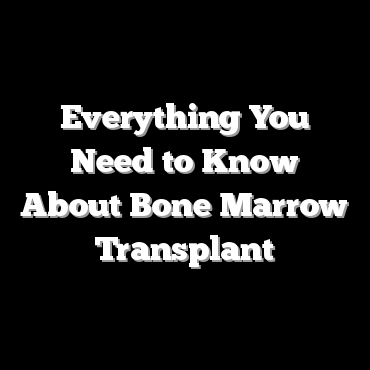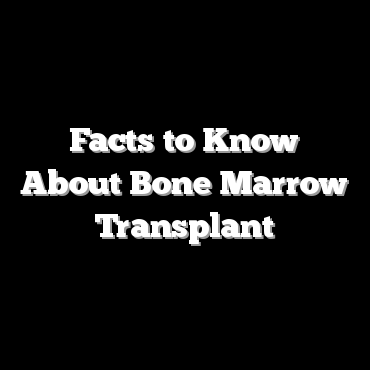Many people believe that giving blood stem cells is unpleasant, but this is not the case. While television productions and films have portrayed blood stem cell donation—particularly stem cell donation—as a terrifying experience, the truth is far less dramatic. The level of discomfort experienced during rehabilitation differs from person to person. Back pain, weariness, headaches, and bruises may occur for a few days or even weeks. Most donors believe it is worthwhile to save a person and will do so again.
What to Do Before Getting a Bone Marrow Transplant
Several tests will be performed before the donation to determine the sort of cells you require. Before receiving fresh bone marrow, you may need to have radiotherapy or chemotherapy to destroy all tumor cells or bone cells.
Transplanting bone marrow can take up maybe a week. As a result, you should make preparations before the first transplantation session.
These may include:
- lodging for the family members close to the hospital
- health insurance, payment services, and other financial problems
- child care
- getting personal leave from job
- packing garments and other needs
- arranging transportation to the hospital.
Your immune response will be weakened throughout therapy, limiting the capability to fight diseases. As a result, you’ll be admitted to a portion of the hospital dedicated to those undergoing bone marrow transplant procedure. As a result, you’re less likely to come into contact with anything that may infect you.
Don’t be afraid to take a set of questions for the doctor to answer. You can either write down your answers or have a companion read and take details for you. It’s critical that you feel comfortable before the surgery and that all the concerns are completely answered.
Counselors are available at many hospitals to speak with patients. Transplantation can be demotivating. Speaking with an expert can assist you in the process.
What to Expect After a Successful Transplantation?
Blood cancer bone marrow transplant is a surgical treatment that is performed on an outpatient basis. During the treatment, you will be sedated and will not experience any pain. Doctors extract marrow from the bottom of the pelvic bone using two small perforations with a syringe.
The majority of patients are admitted to the hospital for a few weeks. They are closely evaluated for problems and addressed for chemotherapy or radiation-related adverse effects.
Patients must undergo a lengthy rehabilitation process and require regular follow-up treatment once they are discharged. To achieve the optimum results, they must attentively follow the doctors’ directions throughout this period.
Donating Carries Very Minimal Hazards stem cell transplant match
It is a widely held belief that giving blood stem cells is risky. The reality is, there are extremely few hazards associated with contributing blood stem cell transplant match. To save lives, you must protect the donors’ health and preserve the public’s trust. All donations are extensively tested to ensure that they are fit and that the process is appropriate for them.
Long-term harmful impacts from marrow donation are rare. The immune response of the donor remains healthy, and the stem cells regenerate in four to six weeks. Although no medical operation is without risk, all precautions are taken to protect the donor’s health and well-being. The immune system remains healthy since only 1 – 5% of the marrow is required to protect the person’s life.
Contact US:
Phone: (800) 962-7769


